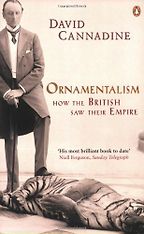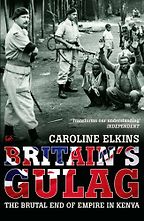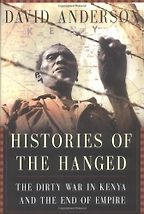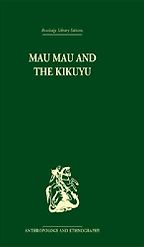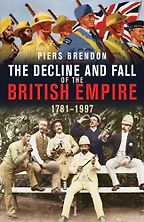Tell me about your first book.
It’s a highly recommendable book of about five chapters by David Cannadine called Ornamentalism. I think he’s a really interesting historian who writes very beautifully. It’s a historical essay – the thesis of which is somewhat contra Edward Said’s arguments in his book Orientalism. Part of Cannadine’s argument is that there was much more cultural interpenetration in the British Empire, certainly in India, than Said suggests. But also its central contention is that the British Empire wanted to see in other cultures a replication of its own power structure, and of its own aristocracy and royalty, and wanted to weld them into the British Empire.
They expected those cultures to reflect British hierarchies?
They read those cultures from their own cultural paradigm, and wanted the Empire to fuse with pre-existing power structures (which is also contra Said). It wasn’t this massive blanket racism within the British Empire – actually there was an awful lot of respect, particularly in the Indian world, although obviously that’s in front of the Iron Fist of the Empire and a bottom line of power.
“the African colonial experience is very different – it’s a much more brutal and rapacious kind of colonialism with much less respect involved.”
In much the same way, Pocahontas had been brought over and introduced to King James as the ‘American princess’, and was introduced at court and received as an aristocrat.
The Empire didn’t recognise black aristocrats like Shaka Zulu.
I think the African colonial experience is very different – it’s a much more brutal and rapacious kind of colonialism with much less respect involved. In Ornamentalism he’s writing about this particular cultural moment of British aristocrats mainly, who, after the First World War and with social change, couldn’t afford to live the life they had been living in Britain any more, and so moved out to places like Kenya and recreated this feudal fantasy world, in which some people are evidently still living. That element of fantasy or fantasy fulfilment that you find throughout the British Empire I found very interesting and intriguing, and evidently in Kenya that takes a particularly debauched tone with the world of Happy Valley.
Next on your list is Britain’s Gulag by Caroline Elkins.
This sits squarely in the style of modern narrative history writing of which Britain is a great producer. It’s very much focused on the prison camp system during the Mau Mau uprising in Kenya – ‘the pipeline’ as it was known. It’s based on a large amount of oral history, interviews that she conducted with survivors of the camps. The Mau Mau uprising was a conflict that was to some degree repressed, and I think this is a significant work in writing its history – I think the author would see herself as reclaiming that history. In her final chapter she writes directly about its suppression and about the afterlife of the conflict, and the fact that there was no official parliamentary inquiry – so there was no real self-examination at the time on the part of the British. It also seems to be the case that a large amount of significant documents pertaining to the camp system that were in the Commonwealth Office were deliberately destroyed.
“It also seems to be the case that a large amount of significant documents pertaining to the camp system that were in the Commonwealth Office were deliberately destroyed.”
It is quite a campaigning book, in that she thinks that the official historical record is misleading. What became controversial about it afterwards is her numbers – some people have thought that her figures overestimate the number of people that went through the camps, which for me, in a way, is neither here nor there. If it was true for 200,000 people rather than 300,000 people, that doesn’t really impact on the way I think about those events. At the nub of the controversy about her figures is an article that challenged her method of calculation. She also gave a hostage to fortune I guess in her choice of title – so someone like Niall Ferguson could write an article saying: while there’s a lot that’s very interesting and valid about this book, a simple equation between what Britain did in response to the Mau Mau uprising cannot seriously be compared to the Stalin terror and its camps. But that’s an argument on the level of rhetoric rather than reality, I think.
Tell me about your third book.
David Anderson’s Histories of the Hanged is a very good detailed historical overview of the Mau Mau uprising. It’s a military history as well as a social history of the conflict. Its name comes from the fact that central to it is his writing about the kangaroo courts that were set up in Kenya, which were possibly no less valid than the military tribunals going on in America.
“The courts functioned to standards that would in no way have been tolerated in Britain at the same time.”
These were courts that were set up, and tried and convicted and hanged about 1,500 people. The courts functioned to standards that would in no way have been tolerated in Britain at the same time. It’s also a book that has a kind of anger to it, but it is I suppose more measured in its claims. I’ve encountered people at readings of The Broken Word who have this sort of competitive attitude to British moral degradation: ‘We may have behaved badly but the Africans behaved much worse,’ is the kind of argument you face, which seems odd and pointless. It doesn’t make a difference to how we consider the British people behaved during that conflict to know that the Mau Mau committed multiple atrocities. There seems to be an expectation that you say, oh well, yes that’s fine – which is clearly not a reasonable response.
Your fourth book is Mau Mau and the Kikuyu.
This is by Louis Leakey, who’s very interesting, a major intellectual figure in the history of paleoanthropology. He grew up in very close contact with the Kikuyu. Leakey was the son of missionaries and spoke Kikuyu better than English. As a child he built, and moved into, a Kikuyu-style hut in the back garden, so he’s very close to that world. He was a Christian and very much a believer, but also a doctrinaire Darwinist. What’s interesting about his take on the Mau Mau uprising and what it did to the Kikuyu people is that, despite his integration and his knowledge of them, he doesn’t at all describe the kinds of systematic social deprivation that colonial settlers produced for the Kikuyu.
“ So there was a very serious breakdown in Kikuyu society entirely caused by the settlers, and therefore some kind of armed rebellion is a pretty understandable response.”
They are a cattle-grazing agricultural people with a social system dependent on land ownership, and one of the impacts the settlers wouldn’t necessarily have known about is that young Kikuyu men couldn’t get married, as they no longer had land dowries to provide. So there was a very serious breakdown in Kikuyu society entirely caused by the settlers, and therefore some kind of armed rebellion is a pretty understandable response.
Although it’s very judgmental of me in this a posteriori position to think this, you feel that Leakey might have seen that, but that’s not at all the terms in which he describes the conflict. It’s squarely in the language of the time, which was that Mau Mau represented an atavism, that they had regressed back to their savage, pre-settled, pre-Christianised state and what was being unleashed was a kind of innate violence. That was an interesting work of the period to read.
And your last book?
It’s an extremely good one-volume history by Piers Brendan called The Decline and Fall of the British Empire. The title indicates that there’s an echo of Gibbons, and one of his central arguments is that the Roman Empire was always consciously in the minds of the British imperialists. It was the great historical model for the project of Empire, and that is double-edged: there is both the massive triumphalism and assertion of historic dignity and power in it, but it also means that the entire conversation about the British Empire from the beginning is shot through with a sense of its ultimate likely decline.
The book is also good on the fact that the Empire for British society as a whole was a minority pursuit. It was a very big part of British culture, but not that many British people were involved in it directly. All the time, right from the beginning, there were large sections of the British population who didn’t think it was a good idea and had no interest in it. It’s useful to remember that, as opposed to the rather monolithic sense of the Empire that you get from the triumphalist version of late high-Victorian narratives about it.
It was also a bit of a second-rater’s pursuit, wasn’t it?
Again, there’s a bit of an exception with India, but you’re right, it was for second sons and spivs, and it was not that glorious. Kipling is fascinating to read in that respect because he reflects how middle and working class the Empire was in lots of ways, as well as being obviously a place of open social mobility. I thought this book was very good on the sense of fantasy – the first three chapters are about the slave trade, and some of it is phenomenally unbelievable: the Empire was a sort of acting out of really deep personality drives. It also addresses the idea of genocide in the British Empire, and says basically there was one, which is Tasmania, where the native population was entirely wiped out. There are descriptions of white settlers in Tasmania wearing necklaces of ears, and one farmer made to stand with his wife’s head tied round his neck.
Does the author take a political view?
I think it’s just quite a fair-minded history, so it enables you to make a judgment about the morality of what went on, although that’s obviously a dangerous thing to do because you’re moralising from a different moral system. But nevertheless for a single volume, quite punchy and exciting work of narrative history that covers the whole of the British Empire, as well as a general moral audit of the system, I think it’s very good.
February 11, 2010. Updated: July 18, 2023
Five Books aims to keep its book recommendations and interviews up to date. If you are the interviewee and would like to update your choice of books (or even just what you say about them) please email us at [email protected]
Five Books interviews are expensive to produce. If you've enjoyed this interview, please support us by donating a small amount.
